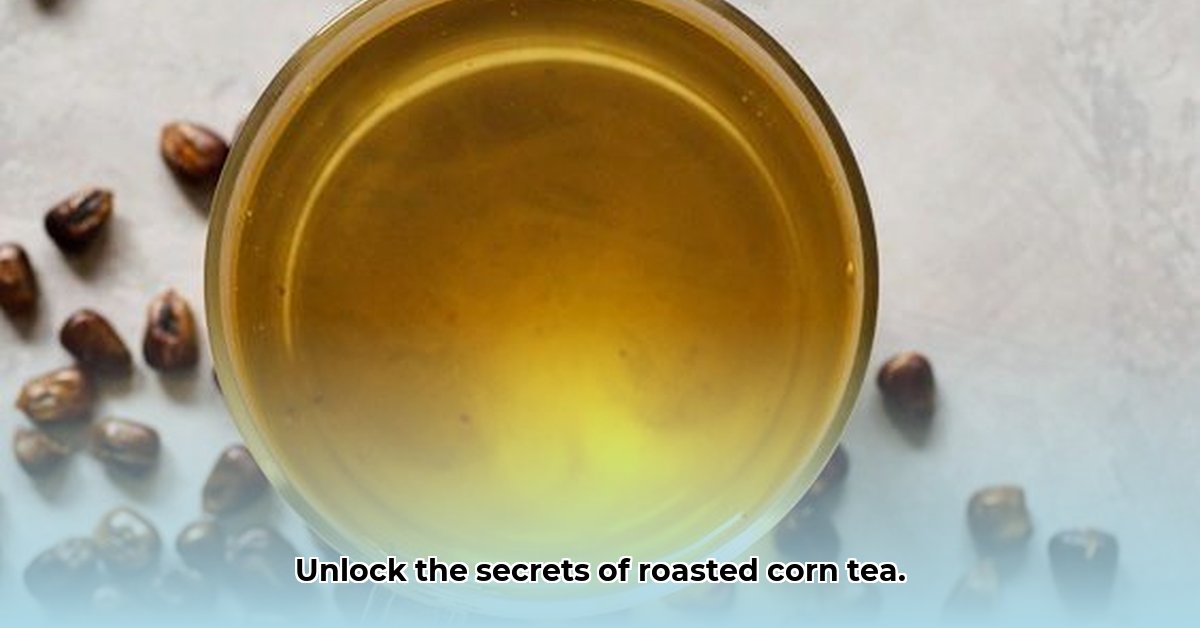
Benefits of Roasted Corn Tea: Unlocking Nature's Goodness
Roasted corn tea, a surprisingly versatile beverage, offers potential health benefits beyond simple hydration. This article explores the advantages, brewing methods, and precautions associated with enjoying this natural drink. We'll examine both corn kernel tea and corn silk tea, clarifying their distinct properties and potential uses.
The Hydration Hero: Quenching Your Thirst the Natural Way
Staying hydrated is crucial for overall well-being. Roasted corn tea provides a low-calorie, flavorful alternative to sugary drinks, making it a refreshing way to boost your daily fluid intake. Isn't a simple, natural hydration strategy preferable to artificial sweeteners?
Antioxidant Powerhouse: Tiny Molecules, Big Impact
Corn kernels contain antioxidants like vitamin C and ferulic acid, which combat free radicals—unstable molecules linked to aging and disease. While more research is needed, this antioxidant potential suggests a role in reducing chronic disease risk. Could incorporating antioxidant-rich corn tea into your diet contribute to long-term health?
Digestive Ease: A Soothing Brew
Anecdotal evidence suggests corn tea may ease digestive discomfort. Although scientific studies are limited, its gentle nature and potential compound interactions may contribute to improved gut health. Could this be a natural way to support your digestive system?
A Gentle Diuretic Effect: Promoting Fluid Balance
Corn tea acts as a mild diuretic, increasing urination to help reduce bloating. However, this means drinking plenty of additional water is crucial to avoid electrolyte imbalances. How can you balance the diuretic effects of corn tea while maintaining proper hydration?
Brewing Your Perfect Cup: A Step-by-Step Guide
Let's delve into the practical aspects of brewing both kernel and silk corn teas. Mastering these simple techniques ensures you get the most out of your beverage.
Kernel Corn Tea: A Simple Brew
- Roast (optional): Lightly roast 1-2 tablespoons of corn kernels in a dry skillet until fragrant (this enhances flavor).
- Boil Water: Heat water to a rolling boil.
- Steep: Add the kernels to a mug; pour boiling water over them.
- Infuse: Steep for 10-15 minutes, adjusting time to suit your preference.
- Strain: Use a fine-mesh strainer to remove the kernels; enjoy!
Corn Silk Tea: A Unique Infusion
- Prepare: Place 1-2 tablespoons of dried corn silk in a teapot.
- Infuse: Pour freshly boiled water over the silk.
- Steep: Steep for 10-15 minutes, then allow to sit for an additional 5-10 minutes.
- Strain: Carefully pour the tea through a strainer. Enjoy!
Potential Risks and Precautions: Informed Consumption
While generally safe, corn tea has potential drawbacks.
- Allergies: Avoid if you're allergic to corn.
- Medication Interactions: The diuretic effect may interact with some medications; consult your doctor.
- Electrolyte Imbalance: Excessive consumption can disrupt electrolyte balance; maintain adequate water intake.
Integrating Corn Tea into Your Healthy Lifestyle
Incorporate corn tea gradually into your routine. Remember, it complements, but doesn't replace, a balanced diet and lifestyle. How can you best integrate roasted corn tea into a healthy, holistic approach to wellness?
The Bottom Line: Current Evidence and Future Research
While anecdotal evidence and some research support certain benefits, more rigorous clinical studies are needed to confirm many claims. Enjoy this delicious beverage while acknowledging the ongoing scientific exploration of its properties. "While the potential benefits are exciting, it's essential to approach corn tea with a balanced perspective," says Dr. Anya Sharma, Registered Dietitian at the University of California, Berkeley.
Understanding Corn Tea Varieties: Kernel vs. Silk
Corn kernel tea and corn silk tea, while originating from the same plant, offer distinct potential effects. Understanding these differences allows you to make informed choices tailored to your health goals.
How to Choose Between Corn Silk Tea and Corn Kernel Tea for Specific Health Goals
Both teas have potential benefits, but robust evidence supporting these is limited. Corn silk tea has a stronger diuretic effect, while corn kernel tea provides a milder approach. "The choice depends on your individual needs and priorities," notes Dr. James Miller, Professor of Nutrition at Harvard T.H. Chan School of Public Health. Always consult your physician before making significant dietary changes.